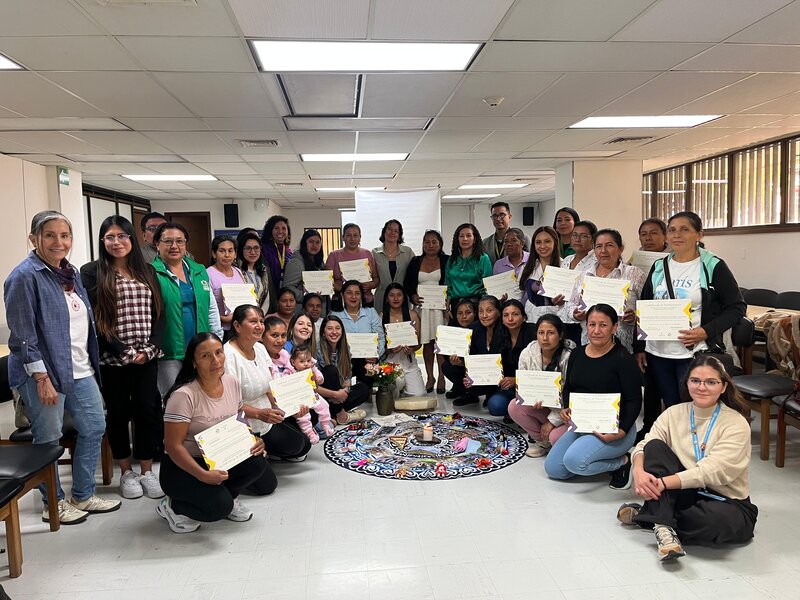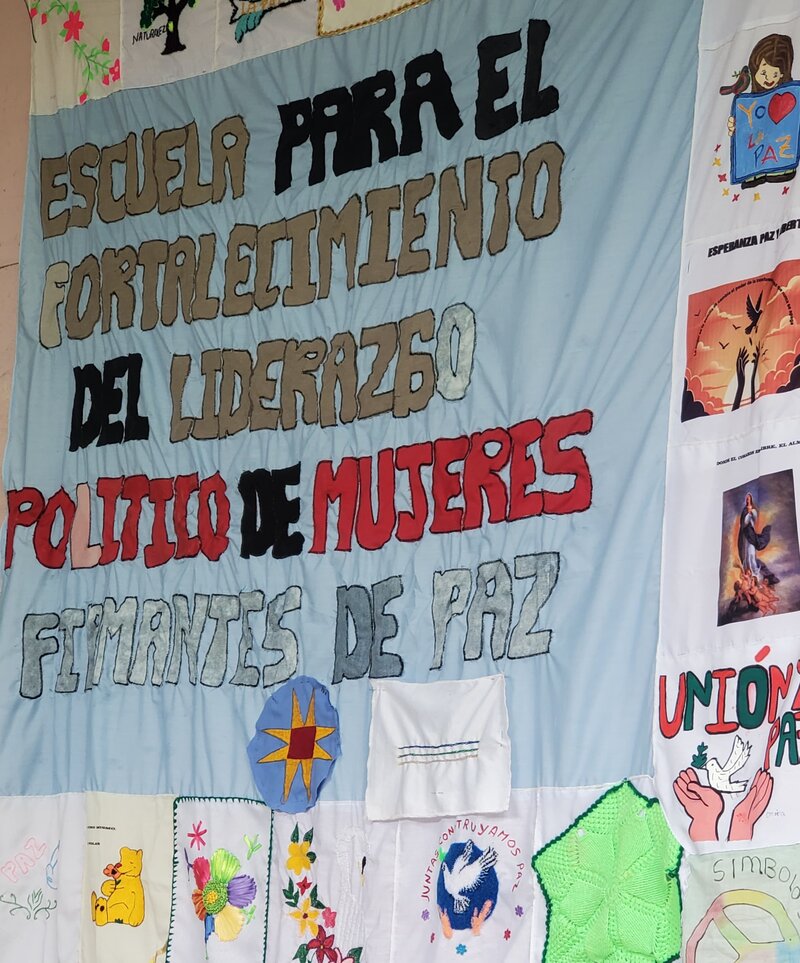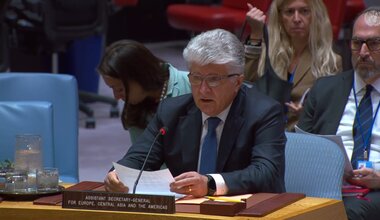Women peace signatories complete political training with an ethnic and community approach in Nariño
Thirty-two women signatories of the Peace Agreement from the Pastos Indigenous people in Nariño successfully graduated from the School of Political Training for Women Signatories and Women from the Communities, organized by Ruta Pacífica de las Mujeres in partnership with the Agency for Reintegration and Normalization (ARN). This initiative seeks to strengthen women’s leadership across the departments of Nariño, Putumayo, Cesar, Valle del Cauca, Cundinamarca, and Caquetá.
In vereda Tallambí, located in the municipality of Cumbal in southern Colombia—where the San Juan River marks the natural border with Ecuador—a group of women of various ages actively participated in the School of Political Training for Women Signatories of Peace and Women from the Communities. Over the course of eight months, this program offered monthly workshops, three advocacy spaces, and an experience-sharing session in Cauca.

“The School changed how we think. It gave us the tools to engage in political advocacy, apply for projects, and take care of ourselves,” says Marcela Pepinosa, leader of Asociación de Mujeres en Minga por la Paz (ASOMMIPAZ), an association of peace signatories and community members working together to strengthen productive initiatives and improve living conditions in their territory. “It brought us closer together, helped us get organised, and made us think about the other women in the Mayasquer Indigenous Reserve.” At 29, Marcela has been active in grassroots work. Today, she is a representative in the Departmental Reintegration Council and a member of the team implementing the Special Harmonisation Program.
For these women, collective thinking is second nature. As members of an Indigenous reserve, they have long taken part in mingas de pensamiento (collective reflection gatherings) to pass down traditions and reflect on their local context, and mingas de trabajo (collective work sessions) to build roads, prepare communal meals, or clear landslides that might cut them off from the town.

In line with this collective worldview, each day at the School began with a moment of harmonization and gratitude. Women would gather in a circle adorned with native flowers, fruits, vegetables, and aromatic herbs. Later, during the training sessions—which always combined theory and practice—participants explored a wide range of topics, from women’s rights and Indigenous peoples’ rights to the history of social movements in Colombia, mechanisms for citizen participation, and ways to identify gender-based violence.
Throughout March and April 2025, a woven cloth bearing the words “Juntas construyamos paz” (Let’s build peace together) became the centerpiece of the sessions. It depicted open hands, soaring white birds, and the Sun of the Pastos—an ancestral symbol tied to the community’s solar calendar. During this period of collective weaving, the participants developed a project aimed at benefiting both themselves and the broader community, with funding from the ARN.
In late May, the project took shape when 25 participants traveled to Popayán to meet with fellow women signatories from the organization Las Manuelitas and Indigenous leaders from Cauca. There, they presented a community work agenda and unveiled their flagship initiative: the dream of building the Casa de la Mujer Mayasquerence, a space where women, girls, and boys can take part in recreational and educational activities within their own Reservation.
This community agenda addresses key issues such as social inclusion, the right to comprehensive healthcare, political representation, and the right to life. It is intended to complement other reintegration and reconciliation efforts currently underway in Nariño, in line with the commitments assumed by the Colombian State and the former FARC-EP under the 2016 Peace Agreement.
Nariño is home to 459 peace signatories currently participating in the reintegration process with the ARN. Of these, 142 are women, and nearly 65% belong to some ethnic group. These figures make the department a strategic focus for reintegration efforts that incorporate both gender and ethnic approaches, and for advancing the implementation of the Peace Agreement’s Ethnic Chapter. In line with the commitments set out in the Peace Agreement, in May 2025 the Mayasquer Indigenous Reserve and the Recuerdo de Nuestros Ancestros de Río Mejicano Community Council formalized agreements for the implementation of the Special Harmonization Program. This initiative aims to strengthen the social fabric in the territories through a collaborative work plan between peace signatories and local communities, promoting cultural practices and ancestral knowledge as integral components of their reintegration.
Cumbal, where the School is located, hosts one of Colombia’s largest reintegration areas, with 120 peace signatories and their families actively contributing to peacebuilding through the Comprehensive Reintegration Program, coordinated by the ARN. Since 2016, peace signatories have formed three associations in the region, launching productive initiatives focused on agriculture, fish farming, and livestock. Women play a leading role in two of these associations—ASOMMIPAZ and Asociación Forjadoras de Paz—where they hold leadership positions and represent the peace signatory community on the Departmental Reintegration Council in Pasto, fostering dialogue with regional and local institutions.

The United Nations Verification Mission in Colombia accompanied this process, recognizing the central role of women in advancing a stable and lasting peace.
“Wardens of peace, infinite in their essence, they build a more just and equal world. The future sparkles in their eyes. In their unwavering walk, women are the lighthouse when the seas rise.” (Weavers of Mampuján)
By: Tatiana Orantes
Public Information Officer - Regional Pasto
UN Verification Mission in Colombia
 UN
UN





